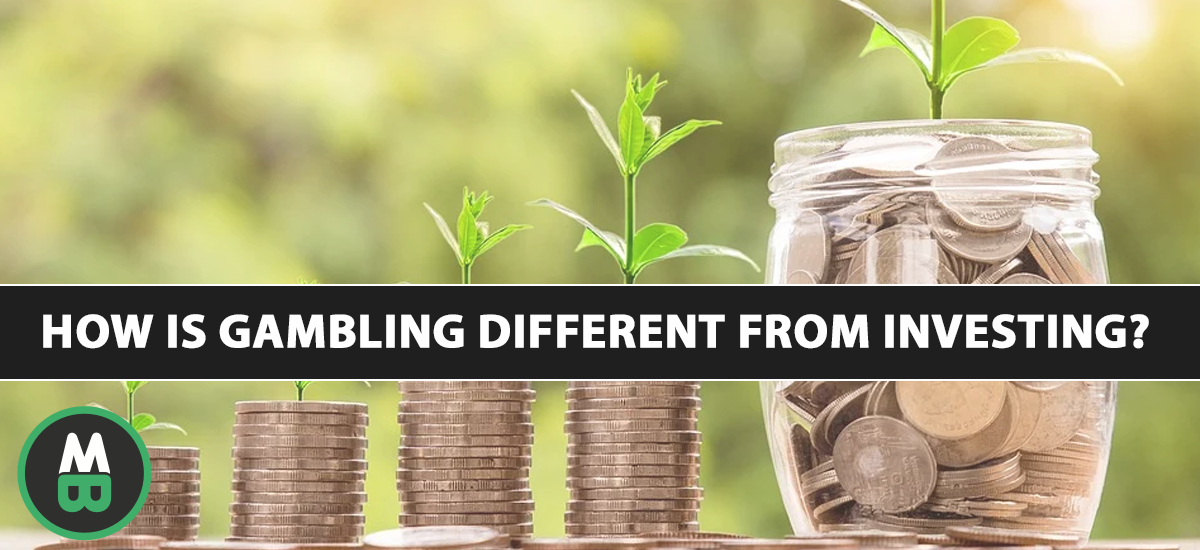How Is Gambling Different From Investing?
October 20, 2020

Here, we are going to look at what differentiates investment and speculation, and the place of value investing in all of it.
Whilst investing money is technically always a gamble, there are a few different rules and tips you can follow to ensure you aren’t just blindly investing and are making more educated decisions.
Gambling typically refers to betting on sports or playing at online casinos which have predetermined odds. Many establishments will hide the ‘house odds’ from the players, because if you knew how likely you were to lose you wouldn’t play – right? Sites like Casimple are on hand to help players have a good understanding of what games there are to play and which to avoid. You’ll find thorough reviews, the latest bonuses and even tips and guides to help you play.
What Is Value Investing
An investment operation could be described as one in which due analysis and consideration reveals some level of safety for the principal and adequate return on investment. Whenever these requirements are not met by an operation, the operation becomes a speculation. That was how the business of investing was separated from the game of speculation by the value investing guru known as Benjamin Graham.
Every Investing Is A Value Investing
Now, when Graham attempted to set the difference between speculation and investment, he was not specifically making a condemnation of speculators based on moral grounds, but he was making a simple codification of what capital allocation looks like and to set some of the rules straight. We also do not have any problem with shorter term speculation. The fact remains that we even incorporate such with our properly managed account service as systemic managers that follow trends.
In our argument, we will posit that in trying to secure enhanced returns against the market and succeed at that, only two systems can work. One of those ways is value investing, and here, we will describe it as securing superior cash flows in an easy manner.
The other system is momentum investing, and here, the numerous price trends that appear in markets are exploited, but without any underlying valuation concern, though defined algorithmic approach and standardized rules are employed in the process in price evolution, risk management, and position sizing.
After this, we will now argue that every other thing is akin to gambling.
Having said all that, a look at most of the financial media reveals that value investing died many years ago. So, it becomes imperative for us to define or even redefine our terms. In the words of Joel Greenblatt, every form of investing is value investing. All others are speculations.
When fund management practitioners garner assets worth a few billions, they start throwing around adjectives like value, growth, and others. By so doing, they are able to sell more types of funds and gain some more assets.
However, the only important difference here will boil down to something that was branded ‘margin of safety’ by Graham. This means the characteristic of a listed asset, for instance, when the asset is purchased at a cheaper rate than the intrinsic worth of the underlying business.
The Most Important Character of Value Investors
As managers of discretionary investments, our major focus is on protecting and growing the irreplaceable capital of our clients by the instrumentality of the different investments that we can get hold of.
Because of the fact that the capital markets have been distorted, and because of the wrong valuations that are inflicted by ignorant inflationists at the central banks of the world, our major focus would be on the Margin of Safety. This is because we want to completely avoid the downturns that overpaying for poor quality investments come with it.
With us, these value share holdings (which entails superior cash flows that were purchased at discount rates, and which emanates from firms that have little or no debts) is complemented with real assets (which means silver and gold, monetary metals, and companies with no debt and superior cash flow generation).
In further diversification, we move to systemic trend following funds, which we can properly predict to have little or no price relation with the bond or stock markets of the world.
With the value stocks, a huge claim is made on human ingenuity and on the real economy. The real assets will involve some sort of hedge against politicians, while the uncorrelated funds stand as a hedge against our overconfidence.
When you read the information on the mainstream media, which is not advisable anyway, you may draw the conclusion that huge gains have been made by speculators chasing growth stocks in the last few years, while real value managers have been losing huge capital over the years.
The reality is that all real value managers have made less money than they would have if they had stocks with firms like Tesla, Netflix and Facebook.
The return of our own equity portfolio has been satisfactory to us, and we have not purchased stocks in firms that we see as either fraudulent or hugely overpriced, or even both in some cases.
The risk with legitimate value investing lies in the fact that as observed by Keynes, the period of time that markets can remain irrational is longer than the players can remain solvent. So, we suggest a combination of patience and the defensive posture as a solution to this.
The observation made by one of the value managers named Peter Cundill is that in value investing, the most essential attribute for success is patience, patience, and even more patience. But most of the investors lack this characteristic.
Comments